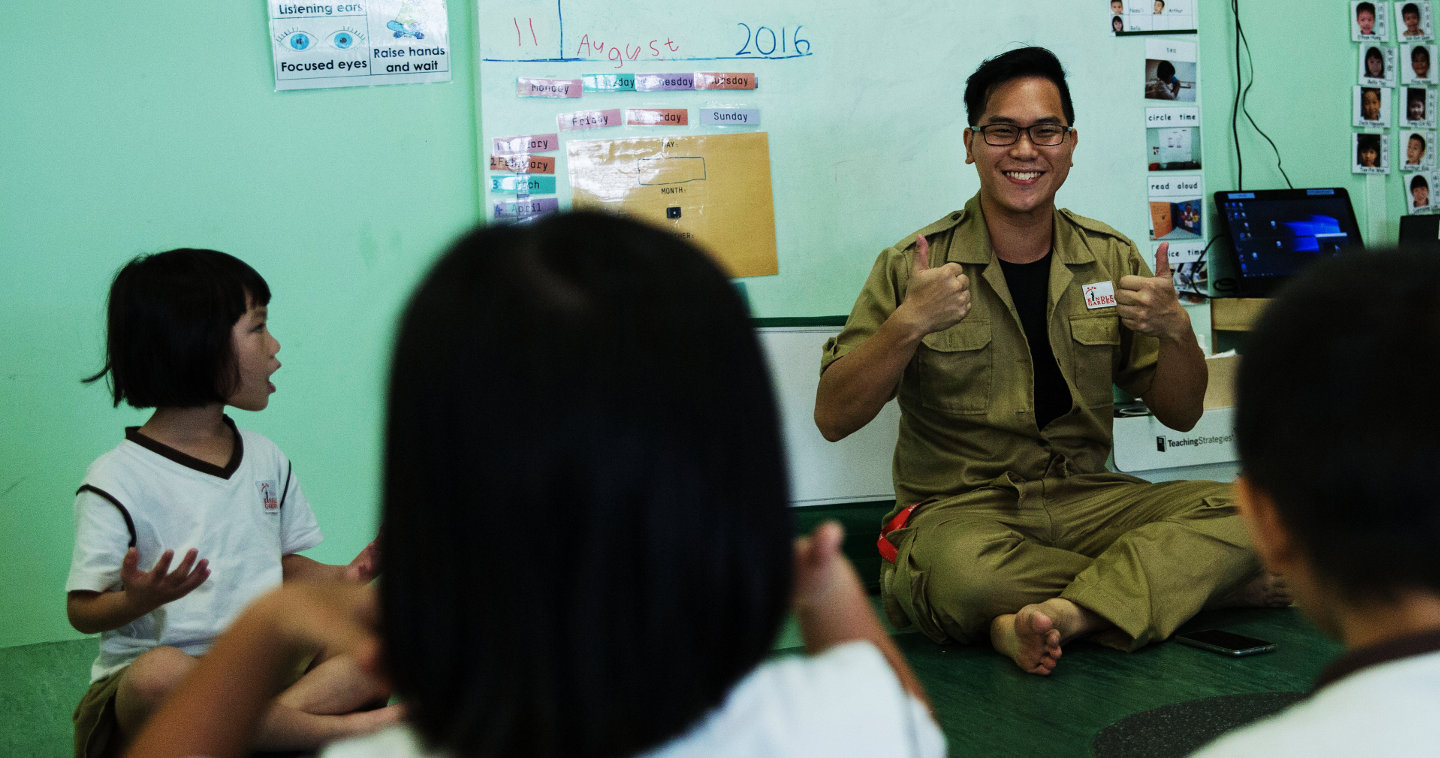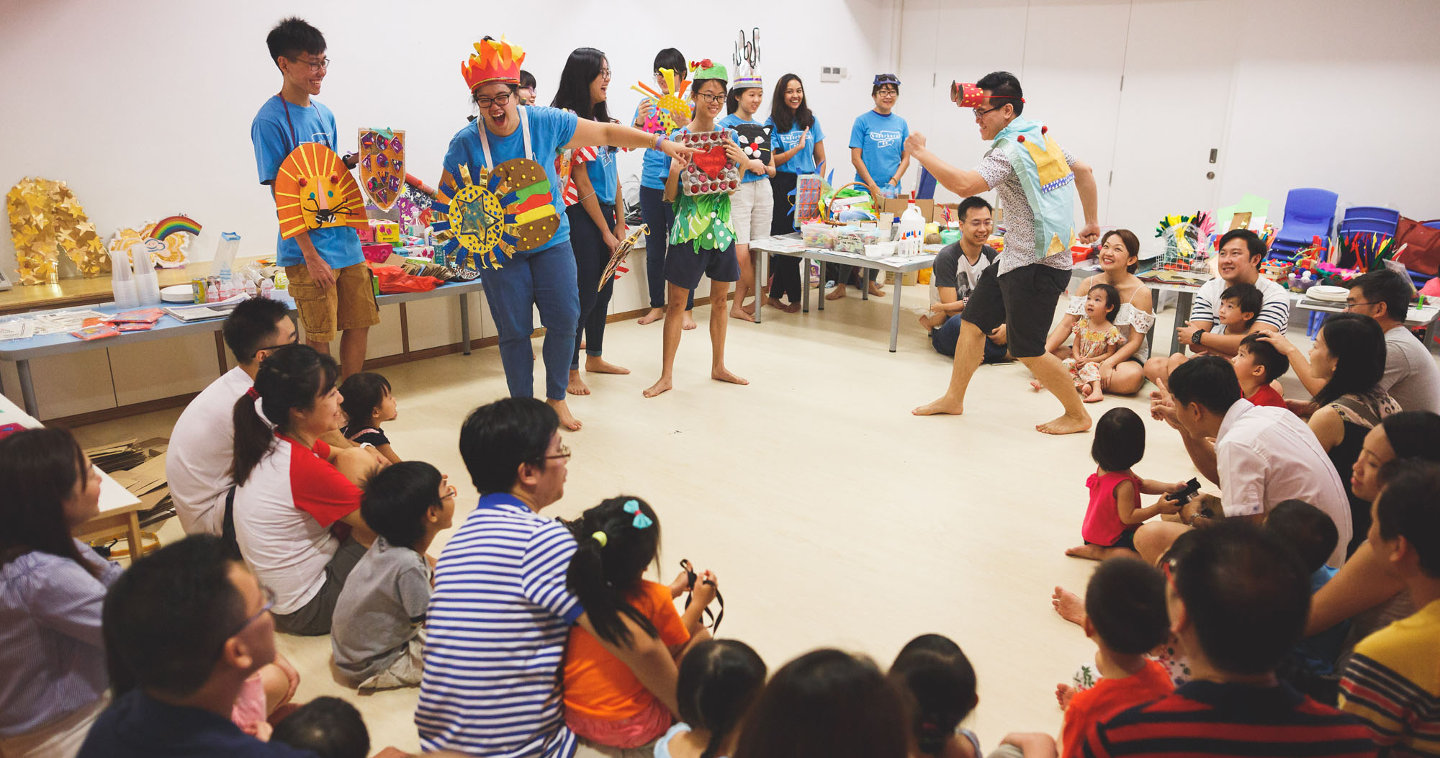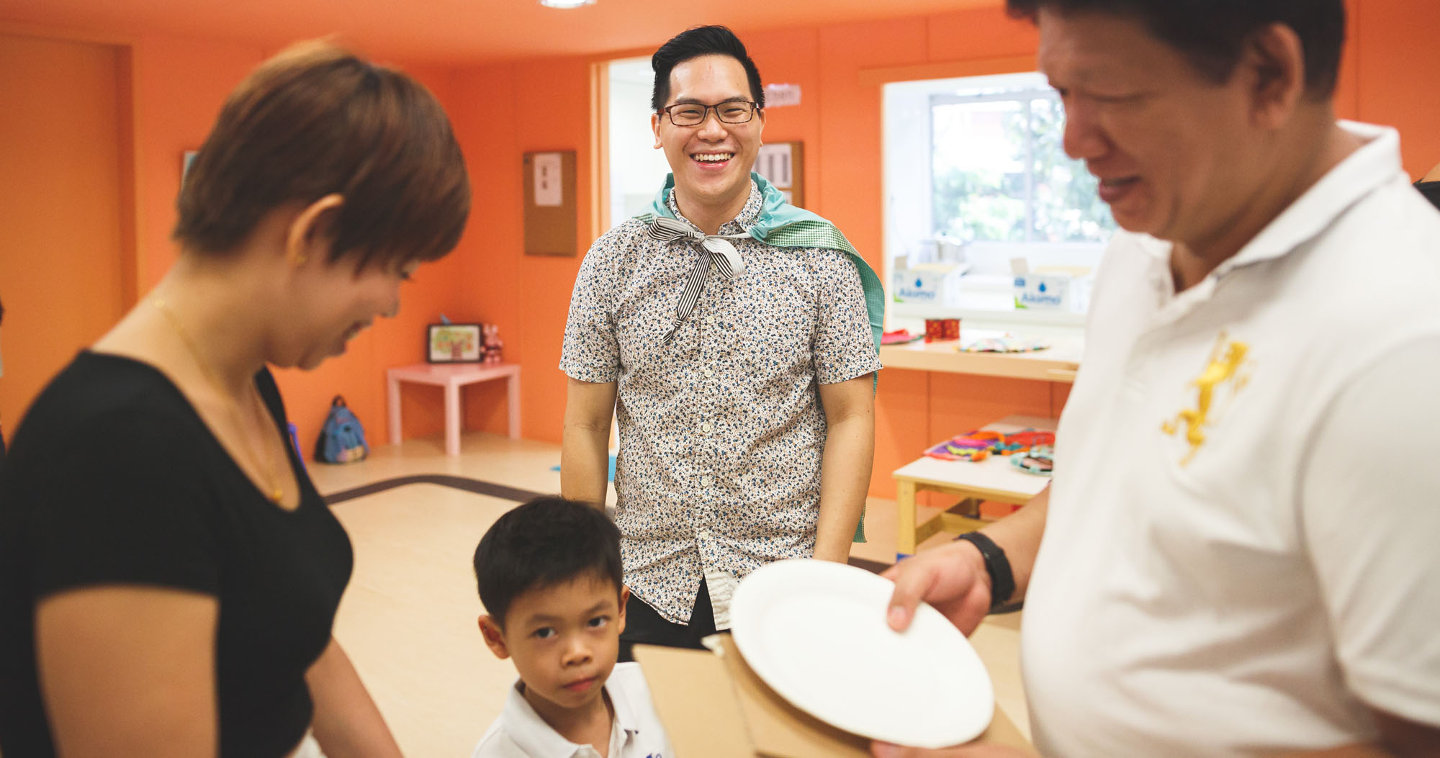
The youngest occupants of the Enabling Village hail from AWWA Kindle Garden, Singapore’s first inclusive preschool.
For parents with special-needs children, Kindle Garden represents a new option among the mainstream schools and early intervention services available. Besides providing both preschool and childcare services, all aspects of Kindle Garden are inclusive: from a curriculum and pedagogy that supports diverse learning, to facilities that are designed to be accessible to children with and without special needs.
By supporting diverse learning, children can learn at their own pace while gaining sensitivity and positive attitudes towards people different from them. Special-needs kids benefit from nurturing social relationships away from segregation and negative attitudes.
We talk to Daniel Cheong, 32, affectionately known as “Teacher Daniel” to his class of 14 preschoolers.
You’ve previously taught in mainstream preschools. What is Kindle Garden doing differently?
It’s the whole concept of not just including them in a space but also seeing how we can engage them together in a mainstream setting. Unlike in a mainstream preschool, we work with children who have different levels of needs and this challenge is pretty new for me. We have an in-house allied health support group, which consists of an occupational therapist, a speech therapist, an interventionist and an associate psychologist. Together, we look at developing individual learning plans for each child by identifying where they are now and projecting a goal for them. For instance, if a child tends to play alone, the goal will be to find one friend to play with. If a child has many friends but is minimally verbal, we see how we can introduce appropriate phrases to express himself or herself.
You studied business in university, but chose to join early childhood education. What misconceptions are there about a preschool educator’s job?
Many overlook the importance of preschool education, The role of a preschool teacher extends beyond the daily routine. But it’s at the age between one to six years old that neurons in the brain start to connect and what they do during this period will have lasting effects. Teaching at Kindle Garden allows me to see how important it is for a child to get a good foundation yet at the same time understanding they are still children, and so playing is the best form of learning for them. It’s about allowing them to enjoy learning first, rather than struggling to learn.

Kids having fun at the 2016 Father’s Day celebration at Kindle Garden, organised in collaboration with Superhero Me
What’s the significance of cultivating inclusion from a young age?
Children are not prejudiced; they treat everyone as a friend. It’s the same with a child with needs. So when children with and without needs work together and accept each other from young, it becomes second nature when they become adults – and anyone with special needs is a neighbour or friend. If this inclusiveness carries through adulthood, then Singapore will be much more inclusive, where we can excel in, collaborate, and create new things, to create a better future for everyone, instead of having only those without needs striving for the best.
Do you notice any behavioural changes in the children, both with and without special needs?
It takes time for me to know the personality traits of all the children, while encouraging good social behaviour. Those with autism and those who are less social may have had fewer opportunities [to socialise] in the past, but now they have to deal with different ideas and ways of talking and playing, and they are improving. They now talk to you and make eye contact. For those children without special needs, they are more persistent in engaging the other children, using problem-solving skills.
We as teachers have to explain to give them an understanding that some of their peers are still learning and that it is hard for him or her to have words at this stage. There’s also this sense of empathy and care that young children have – it becomes very natural for them to look out for one other. It’s not just about giving way or even working alongside one another. It’s really about learning to work hand in hand, not working side by side where you do our own thing and I do my own thing.
What are your aspirations for the children when they “graduate” from Kindle Garden?
We are giving each child an education – to narrow it down to say, preparing them for mainstream or Primary One is just being cookie cutter, when our model is based on per-needs basis. We cannot blanket our aspirations for each child but instead we can look at how they are doing now and project a goal.

Daniel saying farewell to kids at the end of Father’s Day celebrations
What role do you see yourself playing as a kindergarten teacher?
My role is to sow the seeds of good values in our students in our preschool setting like being caring, kind, polite, having empathy and also a sense of confidence that you are able to do what you want to do. You may be very smart, but it is also important to have good values. It is also about giving the children the opportunity to try and problem solve, instead of relying on me to get their answers.
There are so many factors outside these walls that we don’t have control over. We can’t change the world entirely but we can leave a positive impression in what we do and collectively, be catalysts to making a difference. So I think for me, my role will be to create the first impact.
Does the environment make a difference?
Yes, our neighbours [Editor: They’re talking Tech Able] about are very supportive. Just recently, one of them introduced my class to some of the assistive technologies that are on display. As a teacher, I find this both helpful and educational.